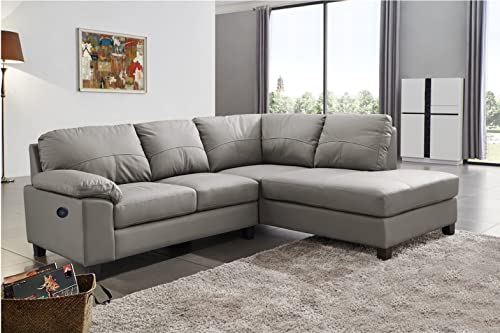How To Identify The Traditional Sofas That's Right For You
Understanding Traditional Sofas: A Timeless Comfort
In the world of home decor, traditional sofas hold a special location. These elegantly created pieces offer not just convenience however also a visual that complements a large range of interior styles. From traditional styles to intricate workmanship, traditional sofas represent a delightful blend of history and functionality.
What Defines a Traditional Sofa?
Traditional sofas typically draw motivation from historic design elements, frequently featuring lush upholstery, ornate details, and a general air of elegance. These pieces differ in design, but they typically share a number of crucial qualities:
- Classic Silhouettes: Traditional sofas frequently boast curved lines, rolled arms, and tufted backs.
- Rich Fabrics: Upholstery made from high-quality products such as velour, silk, or brocade prevails, with patterns ranging from florals to damask.
- Intricate Details: Carved wood legs, nailhead trim, and fringe details often embellish these pieces, emphasizing their creative craftsmanship.
- Comfort-Centric Design: Beyond aesthetic appeals, these sofas are developed for comfort, featuring well-padded cushions and supportive frames.
Below is a table summing up the key functions of traditional sofas:
Feature
Description
Shape
Curved lines, rolled arms, and tufted backs
Fabric
High-quality products like velour and silk
Information
Sculpted wood, nailhead trim, complex patterns
Comfort
Well-padded cushions and helpful structures
Popular Styles of Traditional Sofas
Traditional sofas been available in different styles, each boasting its unique history and charm. Here are a few of the most recognized styles:
1. Chesterfield Sofa
Characterized by its deep button-tufting and rolled arms, the Chesterfield sofa is an icon of beauty. It is typically upholstered in leather, making it a staple in advanced settings.
2. Camelback Sofa
The Camelback sofa features a distinct arch in its back-rest that resembles a camel's hump. This design includes a component of visual interest to any living room.
3. Lawson Sofa
Known for its boxy shape and loose cushions, the Lawson sofa prioritizes comfort without compromising on style. It's frequently decorated with traditional patterns or simple fabrics.
4. Tuxedo Sofa
The Tuxedo sofa has straight arms that are the same height as the back, offering a sleek, tailored look. It's ideal for modern homes that still value traditional touches.
5. Settee
This smaller, 2- or three-person sofa frequently acts as an accent piece. Its shorter length and fragile style make it ideal for hallways or small living locations.
Here's a quick reference table to assist envision these styles:
Style
Qualities
Perfect For
Chesterfield
Deep button-tufting, rolled arms
Classy interiors, formal settings
Camelback
Arching back-rest
Traditional or eclectic decoration
Lawson
Blocky shape, loose cushions
Cozy living-room
Tuxedo
Straight arms, equal height with back
Modern develops with classic style
Settee
Smaller size, delicate style
Small spaces
The Advantages of Traditional Sofas
Purchasing a traditional sofa offers numerous benefits, that include:
- Timeless Appeal: The timeless designs make sure that these sofas never ever head out of style, making them a long-term furniture financial investment.
- Adaptability: Traditional sofas can mix perfectly with numerous decoration styles, from contemporary to vintage.
- Quality Craftsmanship: Many traditional sofas are made from high-quality materials, guaranteeing durability and longevity.
- Convenience: Generously padded and developed for relaxation, they offer a cozy spot for family and pals.
Caring for Your Traditional Sofa
To guarantee that your traditional sofa maintains its charm throughout the years, appropriate care is essential. Here are some essential upkeep suggestions:
1. Regular Cleaning
Dusting and vacuuming the sofa frequently will help keep it tidy. Use a soft brush to avoid harming the fabric.
2. Avoid Direct Sunlight
To prevent fading, position your sofa away from direct sunlight. Think about window treatments that can protect it from harsh rays.
3. Area Cleaning
For spills, address them instantly utilizing a clean, absorbent fabric. Test cleansing services on a small hidden area to guarantee compatibility with the fabric.
4. Expert Upholstery Cleaning
Consider scheduling professional upholstery cleansing every few years to invigorate the fabric and keep its vibrancy.
5. Air Out the Sofa
Every so often, give your sofa area to breathe. Eliminate Designer Sofas and vacuum below to prevent dust build-up.
Frequently Asked Questions (FAQs)
**Q1: How do I choose the ideal size traditional sofa for my living space?A1: Measure your space before shopping. Think about entrances, corridors, and the general layout of the room to ensure an appropriate fit. Normally, a sofa should permit for appropriate walking space around it. Q2: What materials are best for traditional
sofas?A2: Fabrics like velvet, silk, and high-quality cotton
are commonly utilized for traditional sofas. They offer charm and sturdiness, though they may require particular care. Q3: Are traditional sofas appropriate for small spaces?A3: Absolutely! Search for loveseat or settee styles that provide traditional beauty without overwhelming your space. Q4: How do I understand if a traditional sofa is well-constructed? A4: Check for a tough frame made from hardwood, high-density foam cushions, and a weight that suggests quality materials. Prevent sofas that are too light-weight as they might do not have resilience. Traditional sofas embody a beauty that enhances any living space while supplying comfort and inviting relaxation. With a variety of styles readily available
, choosing the best traditional sofa can produce a classic centerpiece in your home. By comprehending the attributes, styles, advantages, and maintenance of these classic pieces, you can make an educated choice that will serve both type and function for several years to come.  **
**